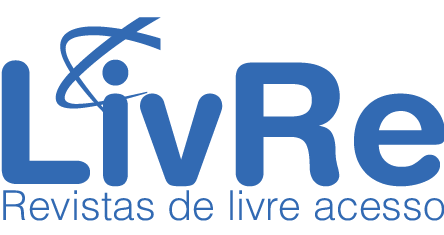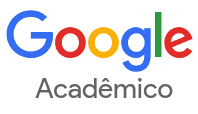Como as mudanças nas políticas educacionais em Xangai têm influenciado as trajetórias dos professores na construção do currículo?
DOI:
https://doi.org/10.46789/edugeo.v12i22.1219Palavras-chave:
Currículo, Professores de Geografia, Práticas curriculares, Reforma Gaokao, ChinaResumo
O artigo explora o envolvimento dos professores de Xangai com o currículo de Geografia no contexto das mudanças políticas do exame Gaokao. O estudo é parte de uma pesquisa de doutorado em andamento, que integra estruturas curriculares existentes (LAMBERT, 2015; PRIESTLEY et al, 2021). Neste texto será considerado, em primeiro lugar, como a reforma Gaokao afeta o status da Geografia escolar, os professores de Geografia e estudantes em Xangai. Por meio de entrevistas semiestruturadas, os participantes construíram junto com a pesquisadora diagramas sobre suas práticas curriculares (curriculum making). Esses diagramas serão apresentados na forma de dois coortes: professores do pré e pós-reforma. Por fim, o artigo propõe um potencial comunicativo da prática curricular transcultural. O processo de elaboração do diagrama oferece um recurso para professores e formadores de professores no sentido de imaginar uma forma diferente na interpretação dos papéis dos docentes em sala de aula em seus trabalhos.
Palavras-chave
Currículo, Professores de Geografia, Práticas curriculares, Reforma Gaokao, China.
How have the changing policies in Shanghai influenced Geography teachers' stories of curriculum making?
Abstract
The paper explores Shanghai teachers’ engagement with the geography curriculum within the changing Gaokao policies. The study is part of an ongoing doctorate project which creatively integrates existing curriculum making frameworks. In this paper, how the Gaokao reform affects geography’s status among schools, teachers and students in Shanghai will first be considered. This research further develops two curriculum making frameworks to design the empirical study. Through semi-structured interviews, the participants and the researcher co-constructed curriculum making diagrams. These diagrams will be presented in two cohorts: pre-Reform and post-Reform teachers. In the end, the paper proposes a cross-cultural communicative potential for curriculum making. The diagram making process provides a tool for teachers and teacher educators to imagine different interpretations of classroom teachers’ roles in their work.
Keywords
Curriculum, Geography teachers, Curriculum making, Gaokao, China.
Downloads
Referências
ALVUNGER, D. Teachers’ curriculum agency in teaching a standards-based curriculum. The Curriculum Journal, 29(4), 2018, p. 479–498.
ALVUNGER, D., Soini, T., Philippou, S., & Priestley, M. Conclusions: Patterns and Trends in Curriculum Making in Europe. In M. Priestley, D. Alvunger, S. Philippou, & T. Soini (Eds.), Curriculum Making in Europe (pp. 273–293). Emerald Publishing, 2021.
BOBBITT, J. F. The Curriculum. Houghton Mifflin, 1918.
CHEN, E. Zhongguo xuexiao dili jiaoyu shilue (A brief history of China’s school geography education). People’s Education Press, 2013.
COHEN, L., MANION, L., & MORRISON, K. Research Methods in Education (8th ed.). Routledge, 2018.
CRESWELL, J. W. Research design: Qualitative, quantitative, and mixed methods approaches (4th ed., International student ed.). SAGE, 2014.
DENG, X. Nian deng xiaoping guanyu huifu gaokao de jianghua he pishi xuanzai [A collection of Deng xiaoping’s speech and instructions on resuming Gaokao] (disclosed on 2007-08-23), 1977. News of the Communist Party of China. http://cpc.people.com.cn/GB/64162/64172/85037/85039/6155819.html
EDWARDS, R., MILLER, K., & PRIESTLEY, M. Curriculum-making in school and college: The case of hospitality. The Curriculum Journal, 20(1), 2009, p. 27–42.
HARDCASTLE, J., & LAMBERT, D. Series editors’ preface (2004). In J. Morgan & D. Lambert, Geography: Teaching School Subjects 11-19. Routledge, 2005.
LAMBERT, D. Opinion Piece: Why subjects really matter. 2005. https://www.geography.org.uk/write/MediaUploads/Advocacy/NPOGMatter.doc
LAMBERT, D. David Lambert introduces ‘curriculum making’. 2015. https://www.youtube.com/watch?v=A0S-LnAyM1w
LAMBERT, D., & Biddulph, M. The Dialogic Space Offered by Curriculum-Making in the Process of Learning to Teach, and the Creation of a Progressive Knowledge-Led Curriculum. Asia-Pacific Journal of Teacher Education, 43(3), 2015, p. 210–224.
LAMBERT, D., & MORGAN, J. Teaching Geography 11-18 – A Conceptual Approach. Open University Press, 2010
LAMBERT, D., SOLEM, M., & TANI, S. Achieving Human Potential Through Geography Education: A Capabilities Approach to Curriculum Making in Schools. Annals of the Association of American Geographers, 2015, p. 1–13. https://doi.org/10.1080/00045608.2015.1022128
LIU, E. Gaige kaifang 40nianlai gaokao zhengce bianqian de fansi yu qianzhan [The Introspection and Prospect of the Policy Changes of the College Entrance Examination during 40 Years of Reform and Opening-up]. Zhongguo Gaojiao Yanjiu [Chinese Higher Education Research], 5, 2018, p. 33–39.
LIU, H. Gaokao gaige de jiaoyu he shehui shijiao [Educational and social perspective of the reform of national college higher education examination]. Gaodeng jiaoyu yanjiu [Journal of Higher Education], 23(5), 2002, p. 33–38.
LIU, H. Gaokao gaige lun [The Reform of National Higher Education Entrance Examination]. Zhejiang Jiaoyu Chuban she [Zhejiang Education Publisher], 2013.
LOVELL, J. Maoism: A Global History. Bodley Head, 2019.
MAXWELL, J. A. Qualitative Research Design: An Interactive Approach (3rd ed.). SAGE, 2012.
MOE. Putong gaozhong dili kecheng biaozhun 2017 [Geography Curriculum Standards for Ordinary Upper Secondary School 2017 version]. Beijing: People’s Education Press, 2017.
MOE. Xuewei shouyu he rencai peiyang xueke mulu (2018nian 4 yue gengxin) [The disciplinary catalog of degree grant and talent cultivation(updated in April 2018)] [Government Official Website, 2018]. http://www.moe.gov.cn/s78/A22/xwb_left/moe_833/201804/t20180419_333655.html
PRIESTLEY, M., ALVUNGER, D., PHILIPPOU, S., & SOINI, T. (Eds.). Curriculum Making in Europe: Policy and Practice Within and Across Diverse Contexts. Emerald Publishing Limited, 2021.
PRIESTLEY, M., ALVUNGER, D., PHILIPPOU, S., & SOINI, T. Curriculum Making and Teacher Agency. In R. Tierney, F. Rizvi, & K. Ercikan (Eds.), Elsevier International Encyclopaedia of Education (4th ed.). Elsevier, 2022. https://www.elsevier.com/books/international-encyclopedia-of-education/tierney/978-0-12-818629-9
PRIESTLEY, M., BIESTA, G., & ROBINSON, S. Teacher Agency: An Ecological Approach. Bloomsbury Academic, 2015.
PRIESTLEY, M., EDWARDS, R., PRIESTLEY, A., & MILLER, K. Teacher Agency in Curriculum Making: Agents of Change and Spaces for Manoeuvre. Curriculum Inquiry, 42(2), 2012, p. 191–214.
PRIESTLEY, M., & PHILIPPOU, S. Curriculum making as social practice: Complex webs of enactment. The Curriculum Journal, 29(2), 2018, p. 151–158.
RAPLEY, T. Sampling strategies in Qualitative Research. In U. Flick (Ed.), The SAGE Handbook of Qualitative Data Analysis (p. 49–63). SAGE, 2014.
SHANGHAI MUNICIPAL PEOPLE’S GOVERNMENT. Shanghaishi shenhua gaodeng xuexiao kaoshi zhaosheng zonghe gaige shishi fangan [The comprehensive implementation plan of deepening the higher education entrance examination reform in Shanghai, 2014]. https://www.shanghai.gov.cn/nw32612/20200821/0001-32612_40379.html
SMEC. Guanyu yinfa ‘Shanghai putong gaozhong xueye shuiping kaoshi shishi banfa’ de tongzhi [Shanghai Municipal Education Commission on the issuance of ‘Shanghai General High School Academic Level Examination Implementation Measures’]. Shanghai Municipal Education Commission, 2021. https://www.pudong.gov.cn/zwgkupfiles/temp/2021-09-30/3264d1fb-695f-42d1-9f8b-494fa6579fb9/沪教委规%E3%80%942021%E3%80%953号.pdf
STATE COUNCIL. Guowuyuan guanyu shenhua kaoshi zhaosheng zhidu gaige de shishi yijian [Implementation Opinions of the State Council in Deepening Reform on Examination and Admission System] [Government Official Website, 2014]. Government Policy. http://www.gov.cn/zhengce/content/2014-09/04/content_9065.htm
STENGEL, B. S. ‘Academic discipline’ and ‘school subject’: Contestable curricular concepts. Journal of Curriculum Studies, 29(5), 1997, p. 585–602.
WU, C., LIU, S., & YANG, Q. 20 shiji zhongguo dilixue yanjiu [Studies of Geography of China in the 20th century]. In: 20 shiji zhongguo xueshu dadian dilixue [Chinese Academic Canon in the 20th century: Geography volume] (p. 1–18). Fujian Education Press, 2000.
YANG, Y. Zhongguo jinxiandai zhongxiaoxue dili jiaoyu shi [The history of geography education in modern and contemporary China] (Vol. 2). Shaanxi renmin jiaoyu chubanshe, 1991.
YOUNG, M., LAMBERT, D., ROBERTS, C. R., & ROBERTS, M. D. Knowledge and the future school: Curriculum and social justice. Bloomsbury, 2014.
YOUNG, M., & MULLER, J. Three Educational Scenarios for the Future: Lessons from the sociology of knowledge. European Journal of Education, 45(1), 2010, p. 11–27.
ZHA, Q. Jiaoyu huiwang: 1977nian wo xiang xiaoping jianyi huifu gaokao [Education Retrospect: I proposed the suggestion of resuming Gaokao to Xiaoping in 1977]. Zhongguo Jiaoyu Bao (China Education Daily, 2009). https://www.edu.cn/edu/jiao_yu_zi_xun/fa_zhan_shi/da_shi_ji/200908/t20090826_402401.shtml
Downloads
Publicado
Como Citar
Edição
Seção
Licença
Proposta de Aviso de Direito Autoral Creative Commons
1. Declaro que o presente artigo é original, não tendo sido submetido à publicação em qualquer outro periódico nacional ou internacional, quer seja em parte ou em sua totalidade. Declaro, ainda, que uma vez publicado na Revista Brasileira de Educação em Geografia, o mesmo jamais será submetido por mim ou por qualquer um dos demais co-autores a qualquer outro periódico. E declaro estar ciente de que a não observância deste compromisso submeterá o infrator a sanções e penas previstas na Lei de Proteção de Direitos Autorias (Nº9609, de 19/02/98)
2. A Revista Brasileira de Educação em Geografia tambem segue a "Proposta de Política para Periódicos de Acesso Livre".
Autores que publicam nesta revista concordam com os seguintes termos:
- Autores mantém os direitos autorais e concedem à revista o direito de primeira publicação, com o trabalho simultaneamente licenciado sob a Licença Creative Commons Attribution que permite o compartilhamento do trabalho com reconhecimento da autoria e publicação inicial nesta revista.
- Autores têm autorização para assumir contratos adicionais separadamente, para distribuição não-exclusiva da versão do trabalho publicada nesta revista (ex.: publicar em repositório institucional ou como capítulo de livro), com reconhecimento de autoria e publicação inicial nesta revista.
- Autores têm permissão e são estimulados a publicar e distribuir seu trabalho online (ex.: em repositórios institucionais ou na sua página pessoal) a qualquer ponto antes ou durante o processo editorial, já que isso pode gerar alterações produtivas, bem como aumentar o impacto e a citação do trabalho publicado (Veja O Efeito do Acesso Livre).







